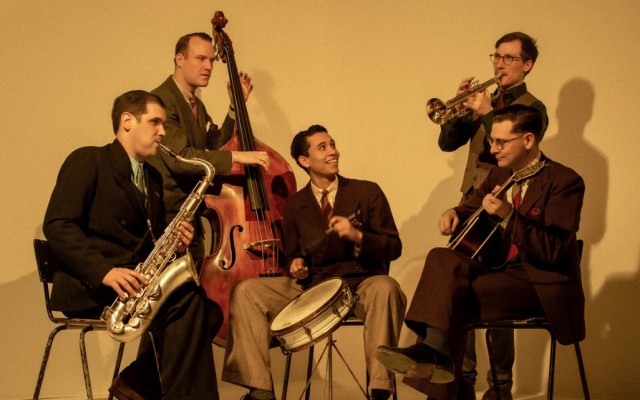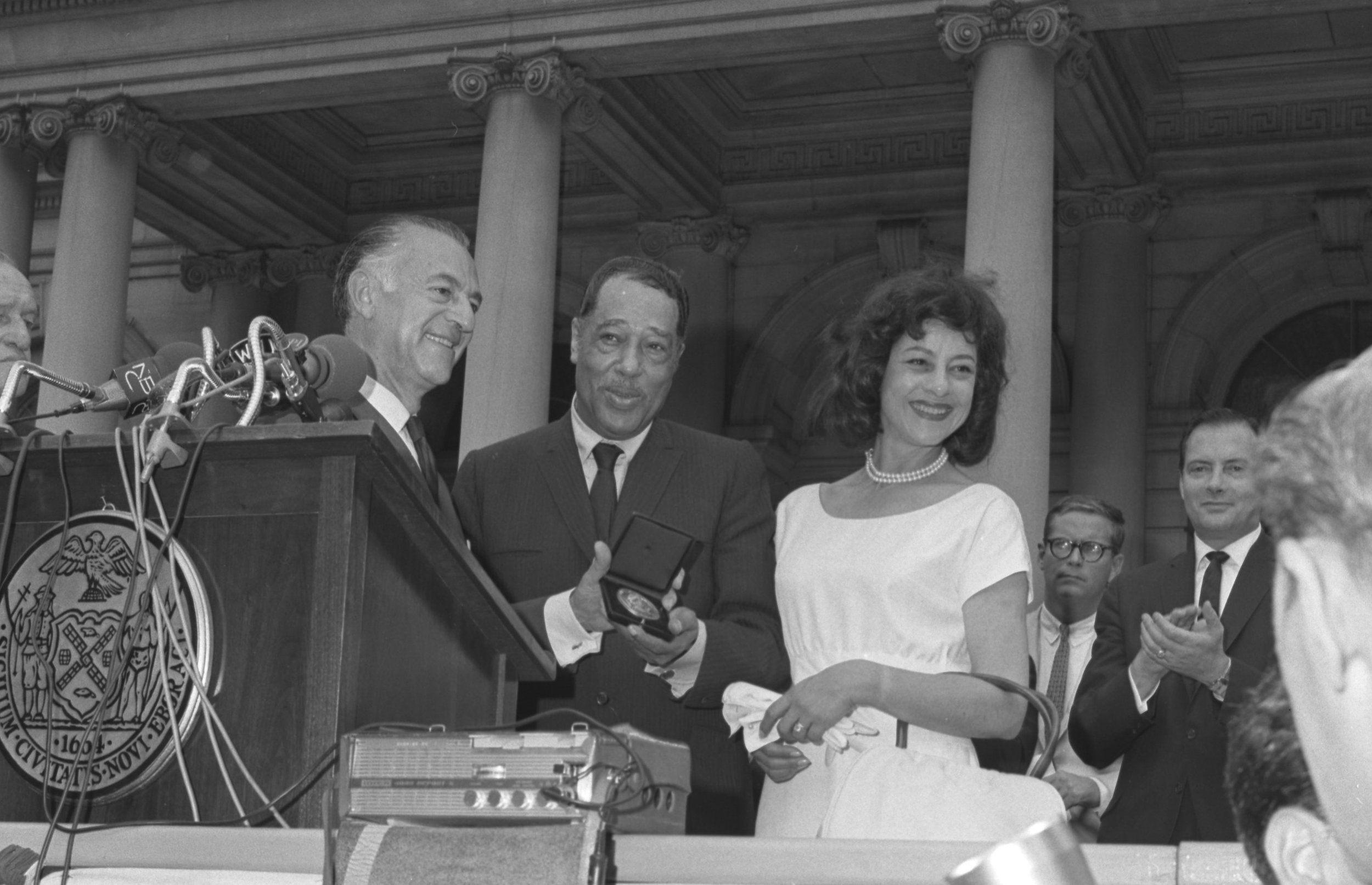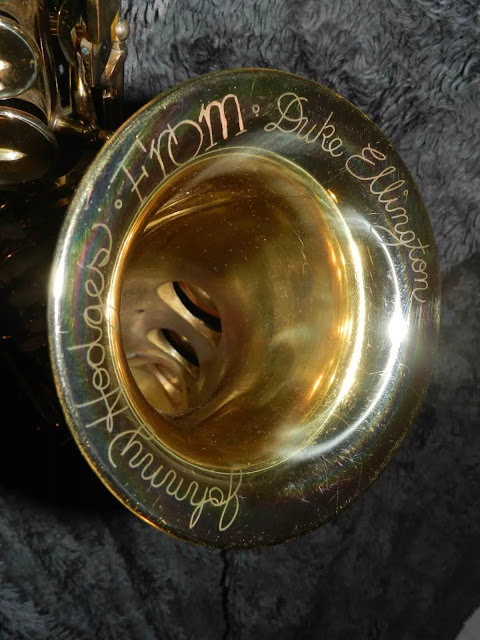Jazz Au Champs Élysées 2024 année Duke Ellington
Sunday, 7 July, 2024 16:00 (CET)
Duke For Ever Le Blue Rhythm Band avec Claude Tissendier
Petit Jardin des Champs Élysées, 24 Rue de Baudreuil, 02100 Saint-Quentin, Paris, France
Daniel Duspiwa ts, Hippolyte Fèvre tp, Jack Latimer g, Malte Tönißen b, David Hermlin dm.
The Big Five have established themselves as Berlin’s most authentic swing-era combo. Combining a propulsive rhythm section, a fiery horn-led frontline and dynamic song-arrangements, this international band makes a deep-dive into the lesser-known repertoire of the Swing Golden Age as well as original compositions. They have some incredibly hot players including the irrepressible swing drummer David Hermlin. With their explosive energy and an intense passion for authentic swing-era jazz, these cats will certainly make you Jump for Joy!
Details here.
Drop Me Off In Harlem
Although Ellington grew up in Washington, D.C. and called his 1920s band the Washingtonians, the city of his birth rarely appears in any of his song titles as opposed to his adopted neighborhood of Harlem, in which he lived for over 30 years before moving a couple of miles south to the Upper West Side. His constant reference to Harlem in his titles helped to develop a mystique about Harlem throughout the world.
In his liner notes to a 1963 Ellington album (Columbia C3L-27), Stanley Dance wrote that Drop Me Off at Harlem, as the title appeared on the label of the original Brunswick release, ‘originated as Duke and Nick Kenny rode in a cab across the George Washington Bridge after a benefit. ‘Where you going, Duke?’ Kenny asked. ‘Drop me off in Harlem’ was the answer. Later, Kenny came up with the lyric.
Even though this tune originated with Kenny’s lyric, Ellington didn’t record the lyric until 25 years later with Ella Fitzgerald singing Strayhorn’s straightforward arrangement.
Possibly because of the lyrics coming first, Ellington’s tune is a simple and direct aaba form. The two harmonic surprises (going to the relative minor near the end of the a section and the chromatic dominant 7ths in the second half of the bridge) are pretty mild. The simple, repetitive melody and rhythms demand a lot of creativity in the arrangement.
Even so, Ellington set very constricting limits on the melody, harmony and rhythm. After the 4-bar intro, there are 3 choruses which never stray very far from the melody even in the final 8-bar shout and short coda.
This piece, like many others of Ellington’s, started with a number of 8-bar phrases which were put together during rehearsal determining the solo order and the re-orchestration of the opening sax 4-part harmony.
The melodic repetition directs our attention to the orchestration, which does not disappoint. Aside from his usual strong voice leading, Ellington engages in some crossed parts and most strikingly employs the vocal technique of placing harmony parts above the melody, first in the muted trombones and later with three clarinets above Carney’s baritone on the melody.
Film buffs may recognize the first chorus from the Neil Simon movie Brighton Beach Memoirs where the first eight bars or so were used as a running gag every time Jerome looked at his brother’s racy French postcards.
Soloists: Brown, Whetsel, Jenkins, Whetsel, Williams, Bigard
Recorded February 17, 1933 in NYC for Brunswick B13081-A
(The same session that produced Slippery Horn)
Personnel:
Reeds: Otto Hardwick and Johnny Hodges (alto saxes), Barney Bigard (tenor sax and clarinet), Harry Carney (alto sax and baritone sax)
Trumpets: Arthur Whetsel, Cootie Williams, Freddie Jenkins
Trombones: Lawrence Brown, Tricky Sam Nanton, Juan Tizol (valve)
Guitar: Fred Guy
Piano: Duke Ellington
Bass: Wellman Braud
Drums: Sonny Greer































